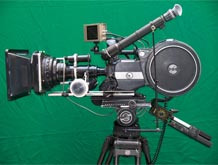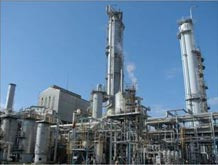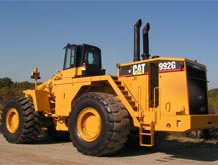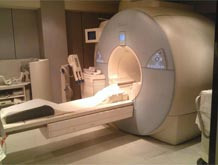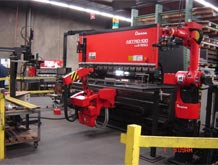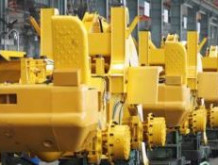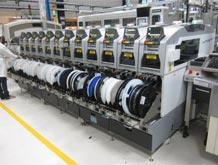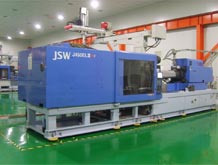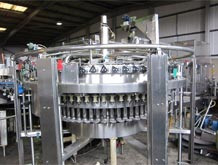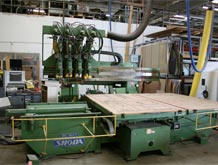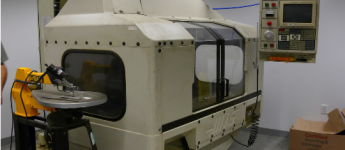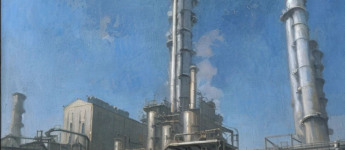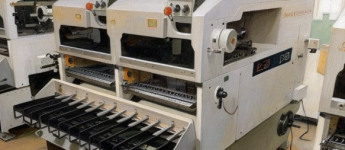
Kitmondo
01 May 2014
This news article was originally published in Practical Engineering 1940 Vol1 No15. Information within this article is therefore correct as of 1940. The publication of this material aims to provide historical insight on the development of industry during this time period.
New Aeroplane Engine
The Wright Aeronautical Corporation have developed an aeroplane engine which, it is claimed, will produce one horse-power for approximately every pound of its weight. It is rated at 1,200 horse-power for take-off. The cylinders are said to be finished to an accuracy of two-millionths of an inch.
Clydeside Engineers' Extra Overtime
THE divisional organiser of the Amalgamated Engineering Union, Mr. Harry Luckhurst, states that a large number of applications for overtime in excess of the 30 hours per month allowed by the agreement have been received. The committee has acceded to all applications by granting a maximum 45 hours' overtime in any period of four weeks. He declares that the demands on the industry in connection, with the supply of material for national services are insatiable, and expansion is proceeding in every direction. The registration of diluted labour is rapidly increasing.
Cornish Industries
Tin was being obtained from Cornwall nearly 3,000 years ago, and by the middle of last century the Cornish mines were producing three-quarters of the world's copper and nearly half the tin. The industry declined owing to the fact that Malayan tin can be picked up on the surface for £30 a ton. To obtain a ton of Cornish tin costs from £140 to £150. This heavy cost is due to the depth at which it is necessary to work it. A shaft may go down as much as 2,000ft. In addition, it costs a considerable sum to keep the mines clear of water.
Difficulties with shipments from overseas and a marked rise in price may increase the demand for Cornish tin. The industry has considerable potential usefulness, and is producing wolfram and arsenic. The development of exports in the slate quarrying industry is under consideration. The china clay industry is active and engineering works in the county are usefully engaged.
France's New Underground Factories
In France, mass production of bombers and fighters will shortly start in a maze of workshops 65 feet below ground. Accommodation for the storage of petrol supplies has also been built underground. Work on these was started immediately after the Nazi attack on Polish aerodromes and the destruction of Poland's fleet of fighter aircraft. An official of the French Air Ministry said, “However powerful an air force may be in the air, it must always remain vulnerable while on the ground."
Automatic Emergency Closing Valves
An interesting new design of automatic electrically - operated emergency steam valve equipment for very quick closing, merely by pressing a button on a small remote control panel, has been placed on the market by Hopkinsons, Limited, Huddersfield. The valve is of the double-seated balanced type, of the firm's usual high grade workmanship, made in cast iron for 150 lb. per sq. in. maximum pressure, in six standard sizes from 2-1/2in.-7in. bore, in cast steel for 250 lb. pressure, also in six sizes from 2iin.-7in. bore, and in bronze for 250 lb. pressure in one size, 2in. bore.
Any number of push-button controls for one valve may be included in the arrangement, and normally the electric circuit is dead. When contact is made, however, by pressing the button, an electro-magnetic device in a small closed casing comes into operation, and releases a catch which holds a weighted lever. On release the weight-loaded lever falls and shuts down the valve immediately. Alternatively, the catch can be operated by a lever or rope instead of by electro-magnetic means.
New Mining Machines
Mr. David Lewis, of Neath, who is on the engineering staff of the Amalgamated Anthracite Collieries Ltd., claims to have designed two important machines which will have far - reaching effects upon the mining and other industries. He says they will mean the total abolition of colliery washeries and certain parts of the existing colliery screens.
One machine, using no medium, will dry-clean all sizes of coal from cobbles to grains to any predetermined percentage of ash content in the finished product, and is capable of dealing with any quantity per hour. The other is a screening machine which, he claims, will separate dry duffs and any other fine powders, using no medium, to any desired degree of purity or ash content.
Iron and Steel Demand
The production of iron and steel continues very active. With the home demand showing further expansion, efforts to increase export trade have been rendered more difficult. Operations in the pig-iron branch of the North-East Coast are confined to production of basic and hematite, and large tonnages are being absorbed by local concerns. Requirements of North-East coast consumers are now supplied mainly by the Midlands as production of Cleveland foundry iron is at a standstill. Output of native iron ore is being increased steadily, particularly in the Cleveland area.

